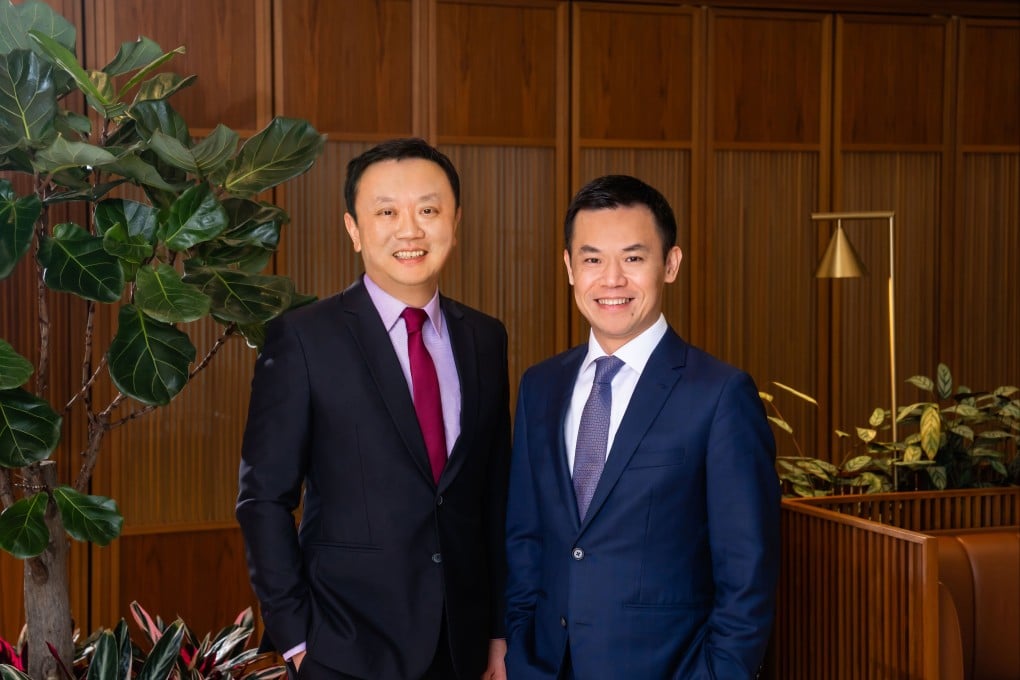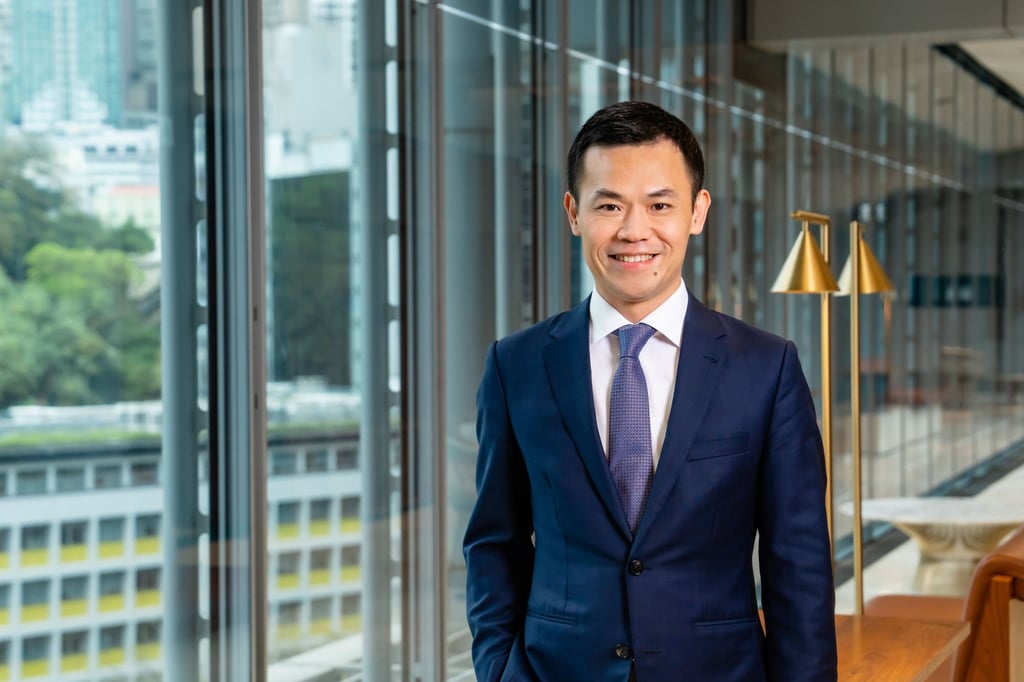HSBC takes centre stage in positioning Hong Kong as an international wealth hub for family offices
- The bank took part in the government’s recent Wealth for Good summit that hosted some of the world’s wealthiest families and their representatives
- As a succession planning tool, family offices are helping families achieve business continuity and a sustainable legacy

[Sponsored article]
Hong Kong’s public and private sectors are leveraging the city’s position as an international financial centre, banking on its sophisticated capital markets and wealth management infrastructure to strengthen its status as Asia’s premier family office hub.
The Asia-Pacific region is expected to experience the biggest growth in wealth among ultra-high-net-worth (UHNW) individuals by 2026, according to Knight Frank’s Wealth Report 2022. An international client survey conducted last year by HSBC Global Private Banking revealed that 85 per cent of families globally are preparing for the next generation to take over their businesses; this rises to 90 per cent and 86 per cent in China and Asean respectively, reflecting a strong desire among Asian families to move succession planning forward.
“With the rapid growth in wealth in Asia, more UHNW clients are taking an interest in professionalising the family’s wealth management through family offices,” says Bryce Wan, market head of North Asia at HSBC Global Private Banking. “Alongside the traditional objective of growing their wealth, they are becoming increasingly focused on wealth resilience to ensure the long-term economic security and prosperity of their families, as well as succession planning and sustaining their legacy.”
The pandemic highlighted how businesses can be blown off course by unforeseen events, which has led to a demand for family office structures that separate a family’s wealth from family businesses and manage them in an institutional manner, to limit the potential impact on each from external factors such as economic volatility or geopolitical tensions.
“Wealthy families are increasingly looking at formalising their risk-management approaches, contingency planning and procedures around decision-making,” says Aik-Ping Ng, head of family office advisory, Asia-Pacific, at HSBC Global Private Banking. “Clients are inclined to explore the set-up of holistic legacy solutions where there is a clear segregation of roles and responsibilities between family members, as well as family members versus non-family members.”
With the announcement of the Hong Kong government’s policy statement on developing family office businesses in the city, Asia has become the first region in the world to offer two jurisdictions with distinct incentives and policies for family offices in Hong Kong and Singapore. From a succession planning perspective, the family office serves as a platform to achieve the family’s intergenerational wealth transfer, while managing both the investment and non-investment matters of the family.
“With the business families HSBC works with, a core-satellite approach through a multi-jurisdictional set-up is often explored. This is in recognition of the fact that both centres have different value propositions and serve different needs for multigenerational families of wealth,” Ng says.

Managing intergenerational wealth transfer
The professional stewardship offered by family offices not only helps to grow clients’ wealth, but is also now seen as a succession planning tool to achieve business continuity and a sustainable legacy for future generations.
Recent research by Campden Wealth found a fifth of Asia-Pacific family offices expect the next generation to take control within the next five years. But while 70 per cent have a succession plan, many have only been agreed to informally.
“More clients are interested in setting up their own family offices as their succession mechanism,” Wan says. “The key function of a family office is to be the steward of a family’s wealth. It plays a key role in helping to orientate families’ values and strategies towards new goals, while simultaneously enabling the family business to diversify and evolve to meet the future needs of a world undergoing rapid change.”
Family offices also help create an ecosystem that enables families to undertake investments in “passion projects” such as art, in addition to investments in green finance and social ventures – all key areas of focus under the government’s strategy to develop the city’s family office sector.
With greater emphasis on succession planning, family offices are increasingly seen as a training ground for the next generation to become stewards of the family legacy. Under the mentorship of the leading family members and with the help of family office advisers, younger generations are learning to make investment decisions through a properly structured platform that will secure the family’s financial future yet are respectful of their family’s heritage.
“It’s about building upon the next generation’s strengths and capabilities to ensure they are properly educated and properly engaged to play a distinctive role in their family business,” Ng says.
A collaborative effort
Last week, as part of its HK$100 million (US$12.7 million) campaign to further develop the city’s family office ecosystem, the Hong Kong government hosted the Wealth for Good in Hong Kong summit, attended by some of the world’s wealthiest families and their family offices. During the summit, the government announced new incentives, including tax concessions for family-owned investment vehicles and a new immigration scheme designed to attract more families and their family offices to the city.
“We believe these incentives will further consolidate the city’s position as a leading regional family office hub in Asia, encouraging new and existing family offices to expand their presence on the ground,” Ng says.
“Expanding Hong Kong’s family office ecosystem will involve engaging with multiple stakeholders within the industry. These could range from financial institutions and the regulators themselves to educational institutions to train and build up the talent pool within Hong Kong.”
With 158 years of history in Hong Kong, HSBC is committed to providing support that helps customers and communities to thrive. It is part of the collaborative effort to develop Hong Kong as an international wealth hub and attract family offices to the city.
“Our clients and their families are increasingly stretching out across borders, and they are looking for solutions to help with the complex family planning,” Wan says. “They may reside in Hong Kong, have business interests in mainland China, need a mortgage from our private bank in the UK for residential property, while using our US bank for their children who are attending university there.”
As part of HSBC’s ecosystem, HSBC Global Private Banking is able to draw upon its international connectivity and extensive network, bringing together the expertise across Wealth and Personal Banking, Commercial Banking, and Global Banking and Markets to meet its clients’ multidimensional and increasingly complex wealth, international banking and multigenerational needs.
“We have deep local and regional know-how to advise wealthy families and their family offices on intergenerational wealth and business succession by leveraging our full range of capabilities including trust business, insurance platform and wealth planning and advisory teams,” Ng says.

Wan says the bank understands every family and business has their own challenges and visions for the future. “We are here to work alongside our clients and their family businesses, assisting with succession planning and helping them manage and maintain family harmony and continuity across generations and geographies.”
Disclaimer from HSBC:
The information contained in this article has not been reviewed in the light of your individual circumstances and is for information purposes only. It does not purport to provide legal, taxation or other advice and should not be taken as such. No client or other reader should act or refrain from acting on the basis of the content of this article without seeking specific professional advice. Issued by The Hongkong and Shanghai Banking Corporation Limited and HSBC Trustee (Hong Kong) Limited.